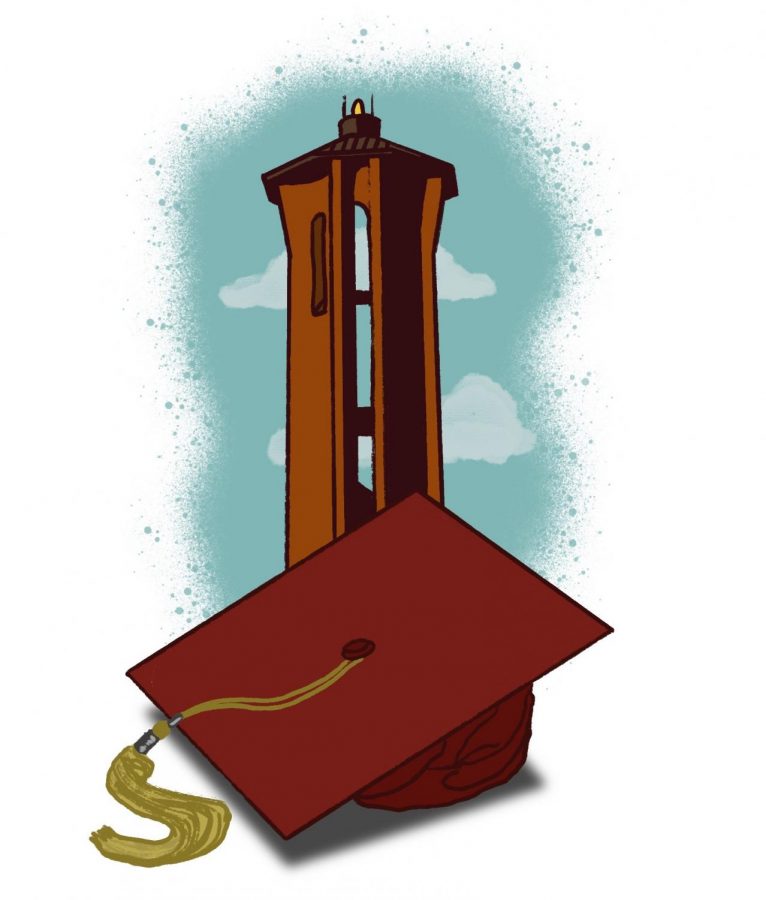1869 Scholars Program offer students mentors
Alumni mentors provide guidance and develop relationships in the year-long program
How many alumni do you actually know? If you’re someone looking for advice or networking, you probably aren’t in contact with as many alumni as you’d like. For the many students who feel that way, Trinity started the 1869 Scholars program, a year-long mentorship program.
The 1869 Scholars Program has been around since 2016, but it has evolved a lot since then. What was originally a summer program is now a year-long one-on-one mentorship program, as Jamie Thompson, assistant dean of students, director of Student Involvement and Trinity graduate class of ‘05, explained.
“1869 Scholars is an alumni student mentoring program. The goals are to connect students and alumni, so they develop meaningful relationships between those two to allow for students to do some vocational exploration,” Thompson said.
The program is in high demand, but with only so many potential mentors, the program can only accept 50 students per year. That’s why they have an application process all students must go through, as Katie Storey, the director of Alumni Relations, explained.
“There are a series of like eight questions that ask, what do you want to get out of this program? What are you hoping to get from a mentor, alumni? You get seminal questions about what they think they want help with and what topics are of interest to them. Other ways that they are involved in the university, major career aspirations or current career, hobbies,” Storey said.
There is also an application process for alumni, and the applications for both students and alumni also serve as a questionnaire that the coordinators use to match mentors and mentees, kind of like a more extensive roommate matching.
However, the involvement of the 1869 Scholars coordinators doesn’t end with matching mentors and mentees. The program keeps up with the mentor-mentee pairs throughout the entire year.
Part of the program’s involvement is making sure the mentors and mentees continue to foster their relationship at least throughout the year.
“Once you’re matched and you have your partner for the year, you do an orientation that talks about setting goals, [and] they learn about the dos and don’ts in the mentoring relationship. Alumni have a similar program on the other side. And then, they meet on their own. We recommend they need to meet at least once a month,” Storey said.
The program also includes four lessons mentees will go through for the rest of the year.
“Theme one is uncertainty of transitions and learning from failure. Theme two is our 1869 skills, and that was actually developed by the Career Services team when they were looking through what are those skills that employers most want to see? So, in that they talk about what skills they have garnered in and outside of the classroom. And the next theme, which is theme three, is sharing your story. So, how do you look at what you’ve gathered as skills and then put that into a concise and meaningful story,” Storey said.
After students have learned all the skills over the year, the final theme is the big interview, as Maranda Larsen, associate director of Career Services, explained.
“We have set up a recorded interview on our side, so a question is asked and then the student answers the questions and is reported. And then, it can go different ways from there. Then the student can actually send it out to anyone they want to have review it … they have their mentor review it, and then they have a meeting where they talk about the feedback from their interview process,” Larsen said.
The theme surrounding all these lessons is a focus on the skills students will need for future employment.
“Those [the competencies and skills] are real-time skills straight from employers. I think they update it at least every couple of years … and the employers just indicate what skills and competencies are most important to them as they look to hire early talent,” Larsen said.
According to Jacob Tingle, a business administration professor and Trinity graduate class of ‘95, there are three main things that the coordinators want students to get from the relationships they have built and the lessons they’ve learned.
“It really does help them identify and practice articulating the skills that they’ve learned in and out of the classroom. [Second] is this idea of vocational exploration, understanding a little bit about yourself and the things that are important to you. And the last piece is significant engagement with an alumni mentor,” Tingle said.
The skills aren’t going to be the only things students take with them after the program is over.
“That relationship doesn’t end, or doesn’t have to end when the program formally ends … the year’s worth of connections that you’ve made are an important part of your life, and now you have a better understanding of how to find another mentor or be a good mentor to someone else,” Tingle said.
So far, it seems like the program has had a positive impact on students. Jamie Thompson was even able to read out one of the many examples of positive feedback they have received from students: “I have thoroughly enjoyed getting to know my mentor and have learned some valuable skills from time in and out of Trinity, despite having two very distinct career choices.”




